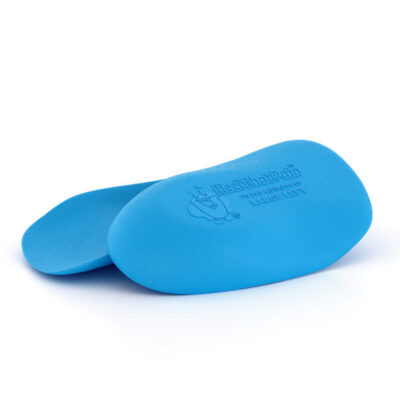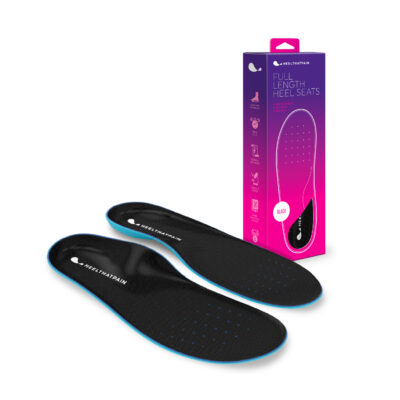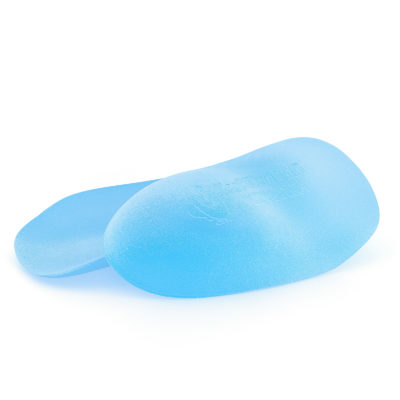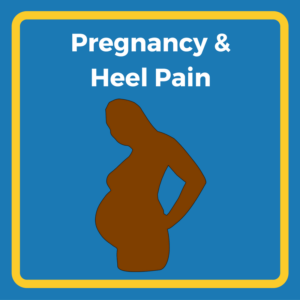 Pregnancy can be uncomfortable for a lot of reasons. You’re dealing with morning sickness, weight gain, stretch marks, swollen ankles, and intense cravings (read: Big Mac, hold the pickles, add maraschino cherries.)
Pregnancy can be uncomfortable for a lot of reasons. You’re dealing with morning sickness, weight gain, stretch marks, swollen ankles, and intense cravings (read: Big Mac, hold the pickles, add maraschino cherries.)
And the cherry on top (the one you didn’t request)? Heel pain from plantar fasciitis often develops during pregnancy too.
The good news is, this particular source of discomfort and pain doesn’t have to haunt your entire pregnancy or postpartum days. In this post, we’ll take a look at the reasons you might be experiencing heel pain during or after pregnancy, how to differentiate plantar fasciitis from normal aches and pains, and ways you can reduce or eliminate the pain of plantar fasciitis during pregnancy.
The Connection Between Pregnancy and Heel Pain
As you gain healthy and necessary weight during your pregnancy, the additional strain on the arches of your feet can cause them to flatten. This, in turn, causes your feet to “pronate” or roll inward as you walk, placing a great deal of strain on your plantar fascia ligament.
Pregnancy is strongly linked to the development of plantar fasciitis because weight gain is, necessarily, often more dramatic during this process. The new, rapid increase in strain on your arches causes small rips and tears to appear in the plantar fascia, leading to inflammation, pain, and, if left untreated, “heel spurs” (small, sharp calcium deposits that result from damage to the plantar fascia and dig into the fatty pad of your heel).
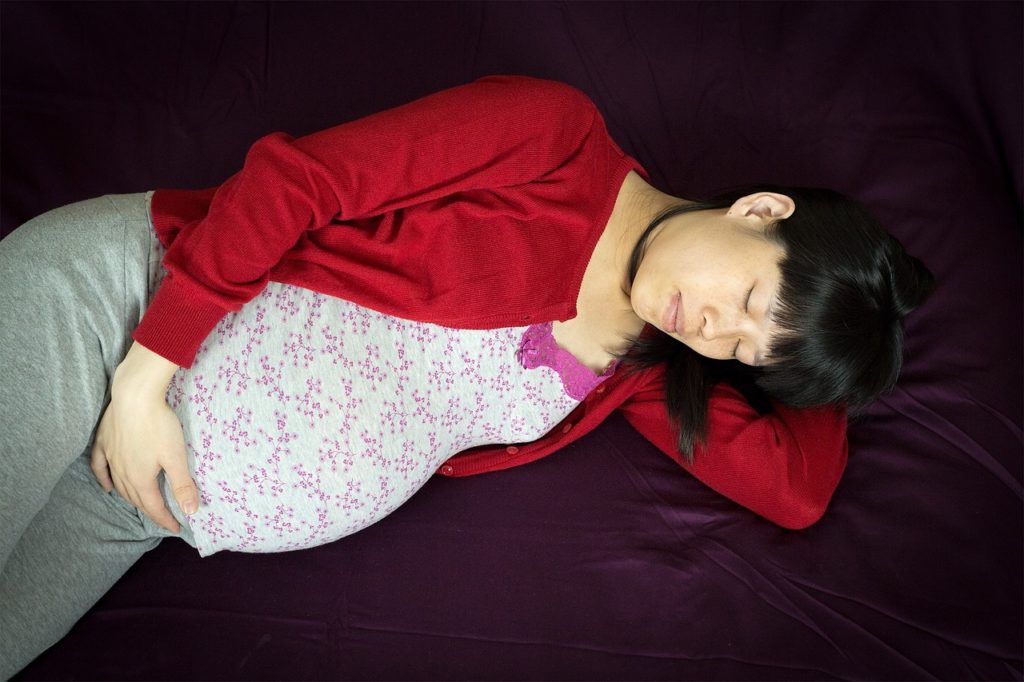
Symptoms of Plantar Fasciitis in Pregnancy and Postpartum
It’s normal to experience tired feet now and then–after all, you’re carrying a growing passenger! Normal soreness will usually go away within a day or two. It’s also normal to experience some swelling, especially as your pregnancy nears its conclusion.
It’s important to pay attention to pain that doesn’t subside after a day or so, is worse in the mornings, and is primarily focused on the bottom of your heel. The pain from plantar fasciitis (as opposed to normal aches and pains) will improve somewhat with activity as your ligaments loosen up.
What Can I Do if I’m Pregnant and My Feet Hurt?
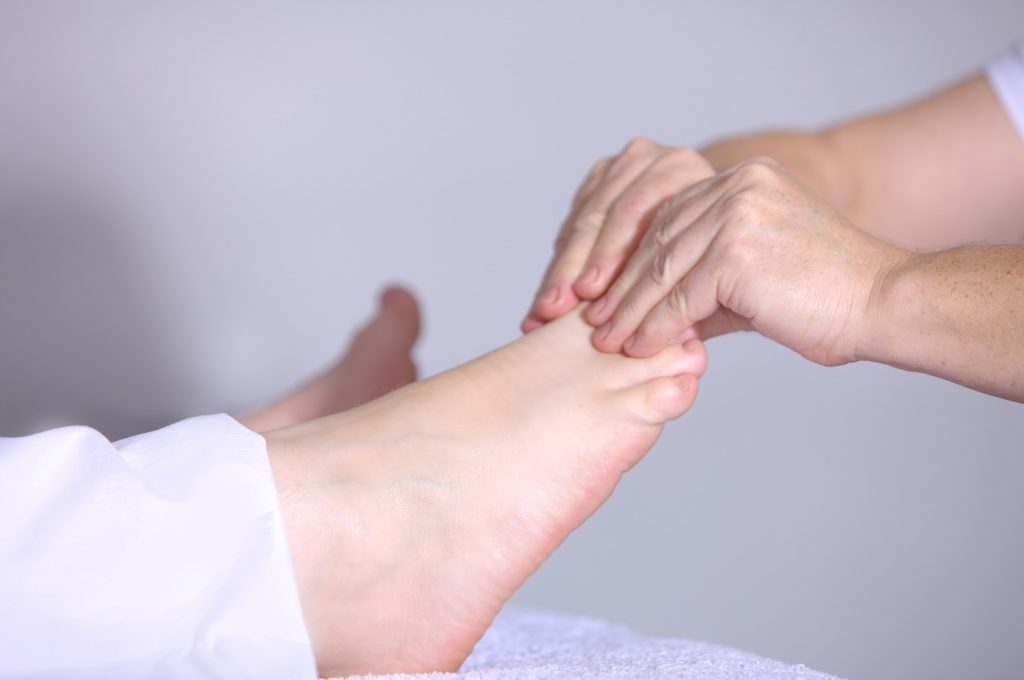
Most women anticipate aches and pains throughout pregnancy, but if your feet are aching–especially if your feet hurt but aren’t particularly swollen–it’s important to pay attention to the pain and recognize that plantar fasciitis may be developing.
If you’re postpartum and still experiencing heel pain, plantar fasciitis is a likely culprit as well. If left untreated, heel spurs will continue to be a source of pain and discomfort long after the baby weight is gone.
So, what can you do about plantar fasciitis during pregnancy or postpartum? (As with any form of treatment during pregnancy, be sure to consult your doctor for his or her recommendation and continued medical input!)
- Rest your feet as much as possible. Don’t be afraid to put your feet up and relax, especially during the day. You’ll also want to avoid standing still for long periods of time particularly–since standing is actually harder on your arches than walking!
- Invest in a foot massage. Massage is a great way to reduce pain in the short term, but also can contribute to long-term healing. Ask your partner to rub your feet, try self-massage with a Foot Massage Ball, or splurge on a prenatal massage, preferrably with a massage doula or other pregnancy specialist.
- Avoid high heels at all costs. High heels and plantar fasciitis are strongly linked even without adding pregnancy to the equation. Opt for a pair of cute sneakers or supportive flats that give your toes plenty of room, support your heel and arch, and help you stay balanced. Many women’s feet swell during pregnancy, so don’t be afraid to size up in shoes if needed.
- Give your feet some much-needed support. Orthotic shoe inserts designed specifically for Plantar Fasciitis can be easily slipped into your everyday shoes–and provide badly needed support and relief for your arches. Orthotics that treat plantar fasciitis are shown to have a 90% success rate in drastically reducing or eliminating heel pain.
- Ice your feet regularly. Icing is a terrific way to reduce inflammation and pain from plantar fasciitis. Ask your doctor first to ensure that icing is an appropriate treatment during your pregnancy, then choose one of many inexpensive icing options made just for plantar fasciitis.
- Do simple stretches daily. Stretching is simple, effective–and can be done from the comfort of your own home! Share these free heel stretching videos with your obstetrician to learn which ones are right for you during your pregnancy!
You have a lot on your mind during pregnancy without adding heel pain to the mix. Nip plantar fasciitis in the bud by treating symptoms promptly, and get back to picking out the perfect baby name or whipping that nursery into shape!

